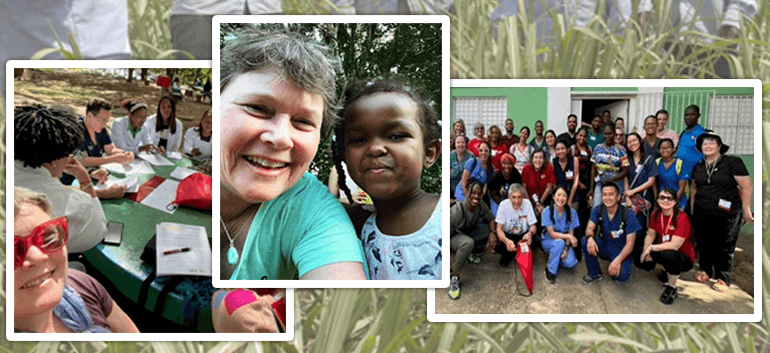Janice Blumer, DO, FAAO just returned from spending a week working hand in hand with local physicians in the bateyes (sugar cane towns) of the Dominican Republic to provide medical attention to Haitian sugar cane farmers, as well as teaching Dominican Family Medicine residents about diabetes. We asked her about her experience and what was most impactful for her.
What was the most inspiring moment for you?
Teaching Dominican Family Medicine residents about diabetic kidney disease in two languages without the aid of a translator. We did it, and I will never forget the lightbulbs that went on as the residents grasped the concept of why you use an ace inhibitor to protect the kidney!
What was the most difficult moment of the trip?
I was working as a medical provider in a batey called Aleman and was working with a young mom and her two kids, a 5-year-old, and a 2-month-old. In the process of the translated interview with her I found out the 2-month-old had congenital syphilis which had not yet been treated. In the states this would have been treated at birth, but this baby had lived her whole life with the disease, and it was heart wrenching.
What would you change if you could go back?
Diabetes is rampant in the bateyes, but unlike in the US, access to medication and equipment is challenging. Many are on insulin but there are no glucometers in bateyes. In the local hospital there are only 3 glucometers for the whole hospital. As a result, many of the patients are walking around with 300-400 blood sugars, even though they are on insulin. There is no such thing as a sliding scale as there are no glucometers. If I could change one thing, it would be to have a glucometer for each batey to use when needed as well as adequate batteries and test strips to last a year.


